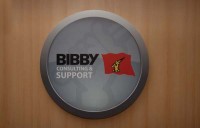 In the present tough economic environment, it can be hard for senior managers to justify the financial commitment of entering into long-term contracts for advice on Health & Safety and Employment Law and other professional support services.
In the present tough economic environment, it can be hard for senior managers to justify the financial commitment of entering into long-term contracts for advice on Health & Safety and Employment Law and other professional support services.
Instead, outsourcing these services from Bibby Consulting & Support as and when needed is the most cost-effective and protective option for companies in the retail and food sector to comply with the ongoing requirements of compliance with UK legislation. Bibby Consulting & Support is the new name for MHL Support, the Health & Safety consultants and Employment Law advisors, and is a member of the Bibby Line Group, which has a wide range of interests including shipping, logistics and retailing as owners of Costcutter.
Bibby Consulting & Support’s qualified, friendly and professional HR advisors and Health & Safety consultants have a breadth of experience in food and drink and retail, and can step in immediately and offer both advice on strategy and assistance with implementation. Michael Slade, Managing Director of Bibby Consulting & Support, spoke to The Grocery Trader.
The Grocery Trader – Michael, as MD of Bibby Consulting & Support, what’s your day to day role?
My main role is to develop, agree and implement our business strategy, ensuring excellent client service whilst growing and developing our staff. We focus on delivering good return for our shareholders, while investing in the future and aligning ourselves with the Bibby brand values.
GT – What is your specialist field?
I’ve worked much of my career as a consultant, mainly in strategic change and business improvement, particularly in retail and commercial services.
GT – You used to be called MHL Support, now you’re Bibby Consulting & Support. When did the name change happen? What was the rationale?
 The name change happened on our tenth birthday in October, and signifies a shift in our market positioning. We’ve become a fully integrated business unit within the £1 billion Bibby Group, with the stability and longevity that brings. Our service offerings have grown over the last year or so, and we have interesting plans for new products in 2011 and beyond.
The name change happened on our tenth birthday in October, and signifies a shift in our market positioning. We’ve become a fully integrated business unit within the £1 billion Bibby Group, with the stability and longevity that brings. Our service offerings have grown over the last year or so, and we have interesting plans for new products in 2011 and beyond.
GT – What specific areas of Health & Safety and Employment legislation do you help clients with? How important is an independent viewpoint?
First, the independent viewpoint is vital. As outside advisors, we can help clients to see their situation clearly and in the light of current legislation and guidelines. That applies whether the situation relates to Health and Safety risks and the way they are assessed, monitored and controlled, or whether the issue is the proper handling of disciplinary or grievance matters in the workplace.
Obviously the challenges of compliance are different for different types of business. For example, for a big franchise brand, reputation is critically important, so we try to ensure nothing is done to place that at risk in any way. For a smaller business, who may be struggling in the current climate, we take a practical approach, along the lines of the recent government ‘Common Sense, Common Safety’ review.
In all cases we ensure, through personal contact, the web and legal updates, that managers have an up-to-date awareness of legislation and of their duties and responsibilities under the law.
Specific Health & Safety areas we cover include Risk Assessment, Control Of Substances Hazardous to Health (COSHH), Manual Handling, Provision and Use of Work Equipment Regulations (PUWER), Electricity at Work Regulations, Fire Risk Assessment and Management, First Aid, Lifting Equipment and Lifting Operations (LOLER), Working at Height Regulations and Control of Asbestos at Work Regulations. Aspects of Employment Law we help with include Employment Rights Act 1996, Employment Act 2002, Equality Act 2010, Transfer of Undertaking (Protection of Employment) Regulations, Working Time Regulations and relevant Codes of Practice such as the ACAS Code.
GT – How common are cases of retailers being taken to court or facing other legal action? What are the penalties for failure to comply with the law?
Overall, as ACAS figures show, instances of tribunal claims are on the increase – and this is usually associated with the recessionary environment. If you part company with an employee, they may no longer be able to secure a new job quickly. They have little to lose by taking you to tribunal.
In terms of the consequences of tribunal claims, a ‘straightforward’ unfair dismissal can be up to £65,300. However, if there are elements of discrimination within the claim, that opens the potential for a more substantial payout. The highest award in 2009 was over £700,000. This represents simply the money paid out as a result of successful claims. However, in addition, when tribunals happen, you need to think about the very considerable amount of management time, effort and stress that goes into preparation and the hearings themselves.
Of course, our services on the employment law side of our business focus on helping clients to manage difficult situations so the parting of the ways is legal and fair. And, if it comes to a tribunal, our success rate for clients is impressive!
 On the Health & Safety side, we see particular problems that our clients face when there is a high turnover of staff, making it difficult to keep everybody fully trained and familiar with their own responsibilities and duties with regard to H&S and working practices. As with employment law, the consequences of not getting it right can be significant. In extreme cases, an enforcing authority can impose a prohibition on operations, and there are fines and possible prison sentences as well.
On the Health & Safety side, we see particular problems that our clients face when there is a high turnover of staff, making it difficult to keep everybody fully trained and familiar with their own responsibilities and duties with regard to H&S and working practices. As with employment law, the consequences of not getting it right can be significant. In extreme cases, an enforcing authority can impose a prohibition on operations, and there are fines and possible prison sentences as well.
GT – In your view, what is the general level of understanding of Health & Safety and Employment law in UK industry? Do we face an impending crisis in terms of ignorance?
Whilst there may not yet be a crisis in terms of ignorance, legal and regulatory changes on both H&S and Employment Law are now happening twice a year. Interpretation of legislation is shaped almost daily by emerging case law, so it is ever more difficult for UK employers to keep abreast of the implications for them and their businesses. Our role is to keep on top of the changes and what they mean for client businesses, so clients are working within the law, and efficiently and effectively from the business viewpoint.
GT – What are the typical situations and issues people ask you to help them with? How has the demand for outsourced advice on Health & Safety and employment law changed in recent years? Have people moved away from in-house HR and health and safety specialists?
In retail the most common H&S issues and areas of concern include slips and trips, musculoskeletal disorders, risk management, stress, violence in the workplace, and fire risk management. Typical situations and issues handled by our Employment Law advisors include conduct and behaviour, such as theft of monies, eating stock, timekeeping and unauthorised absence, drunkenness or abusive behaviour towards customers.
On the ‘decline of in house HR and Health and Safety Specialists’, we find that many clients find in-house resourcing an expensive option compared with the kind of outsourced service we provide. If H&S responsibility is given to an individual who may also be looking after store operations or HR, they can find it difficult to keep up to date with legal changes in the way that we, as outside specialists, can do.
GT – What’s the difference in cost between a long-term contract for advice on Health & Safety and Employment law advice and an outsourced service?
 It’s hard to be definitive here about exact costings, since our services vary depending on client needs. Our long-term contracts ensure the necessary basics in terms of policies, systems and employee terms, access to a 24/7 support line for day-to-day operational advice, and indemnity to protect in terms of, for example, tribunal claims. In many cases, we also provide on the ground support to build client competence. In one recent case, one of our HR consultants sat in as an HR manager over six months or so, to coach and support the in-house team.
It’s hard to be definitive here about exact costings, since our services vary depending on client needs. Our long-term contracts ensure the necessary basics in terms of policies, systems and employee terms, access to a 24/7 support line for day-to-day operational advice, and indemnity to protect in terms of, for example, tribunal claims. In many cases, we also provide on the ground support to build client competence. In one recent case, one of our HR consultants sat in as an HR manager over six months or so, to coach and support the in-house team.
People come to us because it’s a predictable and plannable service: you know what money you need to budget. If you have to deal with a redundancy or other need, it’s a sum you must pay then and there. When the clock starts ticking with a solicitor, the rates are high from the start.
GT – What kinds of companies, in what industry sectors are your target clients? What size companies do you work with?
We work mainly with SMEs and smaller corporates, employing from five people to several thousand. All these businesses need to be compliant with HR and Health & Safety law.
We are particularly strong in retail operations, franchises, the leisure industry and manufacturing. Our view is that anybody with a very small organisation should be talking to us, because it is really difficult to fulfil their regulatory and legal duties economically without some external expert help. And any organisation with a small head office, and lots of geographically spread operational units like retail franchises, needs to talk to us, because we can help ensure the right level of control and compliance!
GT – Typically who is the contact at the client – HR, Health & Safety, general management or the board?
Any or all of these!
GT – How are your teams set up to serve different clients? Do you have different practices covering different industry sectors?
We don’t have different practices, but we have ‘virtual teams’ who focus on specific sectors and sometimes on larger clients.
GT – To go back to the start, when was MHL Support set up? When did you become part of the Bibby Line Group?
We were founded 10 years ago, and Bibby bought a stake in 2006. We became a wholly owned company within the group in Autumn 2009, at which point the founder shareholders were bought out, and changed our name in October 2010.
GT – How does Bibby Consulting & Support fit into the Bibby Line Group’s offering? Do you offer your services to other Bibby companies too?
We provide services directly to some other group companies, including a group of natural burial grounds, Woodlands Burials, some of the Costcutter branches, and their printing arm, Max Printers. Other divisions are either very large, like Bibby Financial Services and Bibby Distribution, or very specialist, like Bibby Offshore and Bibby Marine. They have their own significant internal teams on both HR and H&S, although we provide them with ad-hoc advice.
GT – How big is ‘BC&S’ now?
 In terms of size we’re in the top five compliance firms, some of which are structured pretty much like us, with call centres and field-based staff. Our wider competitor set includes solicitors and health and safety firms. We’re not a solicitors’ practice as such but employ appropriately skilled people to deliver the appropriate advice, and invest heavily in ongoing professional development.
In terms of size we’re in the top five compliance firms, some of which are structured pretty much like us, with call centres and field-based staff. Our wider competitor set includes solicitors and health and safety firms. We’re not a solicitors’ practice as such but employ appropriately skilled people to deliver the appropriate advice, and invest heavily in ongoing professional development.
GT – Where are you based? Do you have any other regional or overseas offices?
Newcastle-under-Lyme is our head and only office, although many of our technical consultants are field based to ensure we cover our client base effectively and efficiently throughout the UK. We are currently focused on the UK and Northern Ireland, although we are exploring ways of supporting UK-centred clients with operations in Europe. Talk to us again next year for an update!
GT – Can you tell us about some of the companies that you have helped as MHL and now as Bibby Consulting & Support? How quickly can your staff come in and offer advice?
We have many long-term clients in the retail sector including Subway, 99p Stores, and the White Company. We also assist a wide range of other industries, sports and leisure including Premiership football clubs and other sports clubs and facilities, right across to care and voluntary services, education, construction and distribution,
Our service model is adapted to suit the needs of every client, so for one client it can be a simple piece of consultancy work for just a few days, for others it can be insourcing, which would involve us being on site for a few days every week. We often receive inbound enquires from people who we visit and bring on board to help with projects within the same day.
GT – As MHL, you used to offer employment law consultancy on a Pay-As-You-Go basis. Do you still offer that? What other Pay-As-You-Go services do you offer?
Yes, we still do our ‘PayGo’ service on employment law – and I guess you could describe our consultancy services as ‘pay as you go’ too. For example, we’ve done quite a few HR projects in 2010, helping clients deal with TUPE or redundancy programmes. We go in, support the company and its management, get things done, and then go away. Not a long-term commitment, but the help they need, when and where they need it!
GT – Is there a checklist of questions for people to work out whether they need to talk to you? Do you offer one-off audits, highlighting areas of possible exposure?
 There are quick H&S and Employment Law questionnaires on our website to help clients decide whether they need to speak to us. In addition, we offer the facility to conduct one off audits and gap analysis, not just on Employment Law and H&S but also on Environmental Matters and OHSAS 18001 and ISO14001.
There are quick H&S and Employment Law questionnaires on our website to help clients decide whether they need to speak to us. In addition, we offer the facility to conduct one off audits and gap analysis, not just on Employment Law and H&S but also on Environmental Matters and OHSAS 18001 and ISO14001.
GT – Can you arrange Employment Tribunal indemnity? Again, is there a checklist to see if you need it? Or if you do, your cover is adequate?
ET Indemnity is part of one of our standard services – and clients get an easy ‘FAQ’ guide to make clear how it operates, and what they must do to ensure they qualify for the cover and peace of mind it provides.
GT – Do you offer handbooks and other reference materials on common problems? Do you produce thought leadership pieces? Do you offer training courses for client staff? Are these certified to particular industry standards?
We offer a full range of factsheets, guides and other reference materials to cover the most common H & S and Employment Law issues faced by employers. We produce a quarterly publication for all our clients to update them on recent developments and provide views on forthcoming legislative changes in these areas.
We offer a wide range of training courses. In terms of Employment Law these would include, but are not limited to, Management Development, Equal Opportunities, Bullying and Harassment, Performance Management, Mock Tribunals. H&S training courses are available across the range of topics including IOSH managing safely, as well as manual handling, risk awareness, working at height, DSE for operators and Electrical Safety at work.
GT – What Health & Safety compliance management systems do you offer? How standardised are these systems and how much can they be tailored to individual companies? Do you help the companies change in order to get the best out of it?
All our management systems are tailored specifically to the client’s needs by our own consultants following an initial consultation visit. They are based on HSG65 Successful Health & Safety Management but are all client and industry specific. We endeavour to change attitudes to Health & Safety management by involving employees at all levels within an organisation. If all levels buy into the project, the change in safety culture and attitudes can be dramatic and positive. We can also support our clients in taking their H&S and EMS systems up to the point of OHSAS 18001 and ISO14001 audits.
GT – What are the main Employment Law problems in the grocery industry?
Typically our retail clients come to us, faced with ex-employees who were ‘delinquent’ in their work and have been dismissed, and are now saying this was unfair. We ensure store managers feel confident they have the right resources to manage these situations. Some of our support line team have, indeed, come from the retail industry, so our approach is informed by understanding the issues ‘from the inside’ too.
 There’s a strongly held view among managers that the unfair dismissal rights are on the side of the employee. Tribunals tend to bend over backwards to ensure employees’ rights are honoured: the onus falls on employers to substantiate their assertions and prove they have the proper due process. There’s a fair amount of evidence that if an employee feels they can’t sustain a claim for unfair dismissal, they make a claim for discrimination instead. This is dangerous for the employer, in particular because there isn’t the same capping in terms of the size of awards. Employers need to show they’ve been through the procedure appropriately with the right letters, right meetings and so on. We know in depth how tribunals look at these things, and can advise step by step, if necessary.
There’s a strongly held view among managers that the unfair dismissal rights are on the side of the employee. Tribunals tend to bend over backwards to ensure employees’ rights are honoured: the onus falls on employers to substantiate their assertions and prove they have the proper due process. There’s a fair amount of evidence that if an employee feels they can’t sustain a claim for unfair dismissal, they make a claim for discrimination instead. This is dangerous for the employer, in particular because there isn’t the same capping in terms of the size of awards. Employers need to show they’ve been through the procedure appropriately with the right letters, right meetings and so on. We know in depth how tribunals look at these things, and can advise step by step, if necessary.
GT – Are there recognised standards that you accredit companies to?
Not at present. However, I would say that we welcome the findings of the government’s ‘Common Sense, Common Safety’ review, which includes the introduction of regulation to the services we provide.
GT – How are you promoting your services?
We run regional seminars focusing on key business issues, take part in exhibitions and sponsor events, carry out E- and mail marketing focusing on certain regions, topics, or sectors, and target companies with certain issues. We are approved suppliers of compliance services to various trade associations and franchises, and have business development teams focusing on key accounts.
GT – Have you won any awards for excellence from your peers?
There are no awards as such in our industry, however our higher than average renewal rates are evidence of our service excellence. Many clients who joined in our first year of trading are still with us.
GT – What external factors do you see driving demand for your services? Which areas of impending legislation do you see as the pressure points in the next few years? Will you be broadening your offer beyond health and safety and employment law?
To build on my answer to an earlier question, basically, government will continue to update legislation twice a year, and there will be a continuing challenge for all industry in tracking and interpreting the way case law shapes how companies need to operate. I can see government is trying to ‘simplify’ things in some ways, for example the Equality Act 2010 wraps up a number of pieces of prior legislation. However any change means somebody has to get their head around what the change means, I’d say it’s easier for us to do that work than it would be for many clients!
We are broadening our offer over time: in 2010 alone, we’ve introduced PayGo and an on-line HR product for employee records. Last year we brought eRAMS to the market, and increased our capability for Environmental Management.
GT – Finally, where do you see Bibby Consulting & Support going from here?
We’re in strong shape for the future, with really good, capable people, who are committed to client service. We will be growing and developing the range of products over the coming months and years. However, for me the key thing is that we continue to deliver outstanding quality and service to all our clients – whatever their size and wherever they are!
Bibby Consulting & Support
Tel: 08453 100 600




Comments are closed.